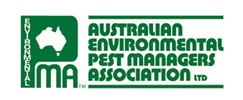FAQs
FAQs - Pest Technician Training Course
Which pests are covered in this course?
We cover in great detail all the common pests such as ants, cockroaches, rodents, spiders, bed bugs, bees and wasps and birds. We also go to the next level and cover less common pests such as fabric pests, fleas, flies, mites and occasional invaders (amphipods, millipedes, springtails, thrips, booklice [psocids] and stored product pests). In addition, we have a comprehensive course on termite identification and control, which is necessary to become the complete pest controller.
What is the course length?
The beauty of doing an online course is that you can work in your own time. If you are working full-time you can study in your own time.
On average the course would take a person working in the pest industry about 160 to 180 hours to complete. You can take your time with this course or do it as quickly as you like, but you will need to complete the course within one year.
What is involved in this course?
The working in industry program is comprised of the following training components:
- Online learning program: This includes video material demonstrating and discussing pest management in real locations. It also includes theory, diagrams and photographs.
- Online tutorials: Monthly live, online tutorials provide the opportunity to listen and discuss aspects of pest management with other students and a tutor. These tutorials also allow you to discuss any questions you have in relation to your learning.
- Video tasks: You will need to find a friend or colleague to video you putting theory into practice for a number of practical tasks, including three pest management job scenarios.
- Workplace supervisor tasks: You will need to find a qualified pest technician at your place of work, who can be your workplace supervisor. They will be responsible for assessing your competency in a number of pest control tasks that you can perform ‘on the job’.
Will there be course assessments?
Yes there will be. But rest assured, our training process makes learning easy so these assessments will not have you staying up night after night in sweat and stress. To successfully complete our pest technician training course you will demonstrate your competence through the following:
- Online multiple-choice questions – marked and feedback provided immediately on completion of the questions.
- Practical tasks – provided in modules as you progress through the program. Tasks will be videoed by you and submitted for assessment.
- Site assessment tasks – completed with your workplace supervisor at the end of section 2. Tasks will be documented by your workplace supervisor and submitted to us for review and assessment.
- Training on the job checklist – completed by your workplace supervisor and submitted to us for review.
What qualifications do I have once I successfully complete this course?
On successful completion of this course, you will be issued with a Statement of Attainment for three units of competency (CPUPM3005 Manage pests by applying pesticides, CPUPM3006 Maintain equipment and CPUPM3018 Pesticide storage area in pest management vehicle).
You can use this as evidence of training when applying for your state or territory pest licence (WA excepted).
You will need to contact your state or territory licensing board for details on how to apply for a pest technician’s licence as this varies depending on the jurisdiction.
Do I need to be working in the industry?
Yes. We used to offer a ‘new to industry’ course for people out of the industry, but unfortunately, the industry training requirements have changed and students now need to have a pest technician job to complete the practical training.
Can I get my full Certificate III in Urban Pest Management through WRT?
Not through WRT at the moment. However, you can complete the additional units required with another provider.
What will I get when I finish?
On successful completion of a course, you will receive a Statement of Attainment covering the units you have passed. This is sent out as both a paper certificate and a pdf.
How do I get my pest licence when I finish the course?
When you completed the Pest Technician Training Course you will be able to use the Statement of Attainment as proof of training. Each state/territory licencing board is different, and you should contact your state/territory licencing board direct for their licencing requirements. Links below.
- NSW Licencing Board
- Victoria licencing board
- Queensland licencing board
- South Australia licencing board
- ACT licencing board
- Northern Territory licencing board
Who can be my workplace supervisor?
A workplace supervisor is an essential part of this course. You cannot complete the course without one. A work colleague can be a workplace supervisor if they have a current pest management licence and have a minimum of two years experience in the work being supervised. They must also have passed the following three units of competency themselves (or the equivalent):
- Manage pests without pesticides
- Manage pests using pesticides
- Chemical and equipment storage
I want to do this course – what next?
- Register with WRT.
- You will receive a link to a free Language, Literacy and Numeracy (LLN) test.
- Complete the LLN test (allow 20–30 minutes).
- We will email you with the results and the next steps in the enrolment process.
- Pay the course fee.
- Complete the induction (you will need to provide an ID and a USI number as part of this process).
FAQs - Timber Pest: Inspections and Management course
How long will the course take?
On average the course would take a person working in the pest industry about 160 to 180 hours to complete. That equates to about one month of study. You can take your time with this termite course or do it as quickly as you like, but you will need to complete the course within one year.
How is this course assessed?
In order to pass the Timber Pest: Inspections and Management course, you will have to successfully pass multiple-choice questions at the end of each theory module. In addition to this you will also have to pass the following practical assessments:
- Practice experiences and tasks x 5 – these shorter practical exercises are designed to help you to build up your practical skills by putting some of the theory you have learnt into practice. You will need to arrange for someone to video you carrying out these exercises. You will then need to submit your video to us for assessment.
- Work order video assessments x 3 for each unit – these longer tasks involve performing timber pest inspections and management jobs (real or simulated) on a minimum of three different sites. You will need to arrange for someone to video you carrying out the jobs and you will need to submit your videos to us for assessment. You will also need to submit the associated job paperwork.
- Site assessments x 7 for each unit – these tasks will need to be done under the supervision of your workplace trainer. You will need to perform seven timber pest inspections and seven timber pest management jobs (actual jobs, not simulations) on a minimum of seven different sites. Unlike the work order assessments, the site assessments do not need to be videoed. Instead, your supervisor will complete a site assessment checklist for each job, and this will need to be submitted to Work Ready Training, together with photographs of you carrying out the job. You will also need to submit the job paperwork.
Who can be my workplace supervisor?
A workplace supervisor is an essential part of this timber pest course. You cannot complete the course without one. A work colleague can be a workplace supervisor if they have a current pest management licence and have a minimum of two years of experience in the work being supervised. They must also have passed the following two units of competency themselves (or the equivalent):
- Inspect for and report on timber pests.
- Control timber pests.
Why do I need to do a Language, Literacy and Numeracy (LLN) test?
An LLN is a free, short test that checks that you have the necessary level of English and maths to complete the course. As part of your job as a pest controller, you must read pesticide product labels and mix and apply pesticides. It is extremely important that your English and numeracy is of a sufficient standard to do this competently and safely.
Where can I do an LLN test?
- Email or call us on 1800 842 100 (our training helpline is open from 08.30 to 17.30 EST, Monday to Friday).
- We will send you a link to the online LLN test.
- Complete the test (allow approximately 20 minutes).
- We will confirm your results.
- Once you have passed the LLN test, you will be able to enrol on a course.
What if I fail the LLN test?
Unfortunately, if you do not pass the LLN test, we do not currently have the resources to work with you to bring your skills up to the necessary Certificate III level. Therefore, if you do not pass the online LLN test, you will need to do an LLN course with an external provider, before you can enrol.
What is a USI and how do I get one?
You need a USI (Unique Student Identifier) to enrol on this course and to receive your qualification or statement of attainment at the end of the course. USIs are obtained from the government and if you have completed vocational training before you may already have one. For more information on USIs, including how to apply for one, click here.
What is an RTO?
An RTO, or Registered Training Organisation, is a training organisation that is registered by a State or Territory recognition authority to issue Australian Qualifications Framework qualifications and statements of attainment.
Is Work Ready Training an RTO?
No, Work Ready Training is not an RTO. We work with RTOs, developing content for them and providing the day-to-day running of their online courses.
Is the full Certificate III in Urban Pest Management available through WRT?
No, not at the moment.



